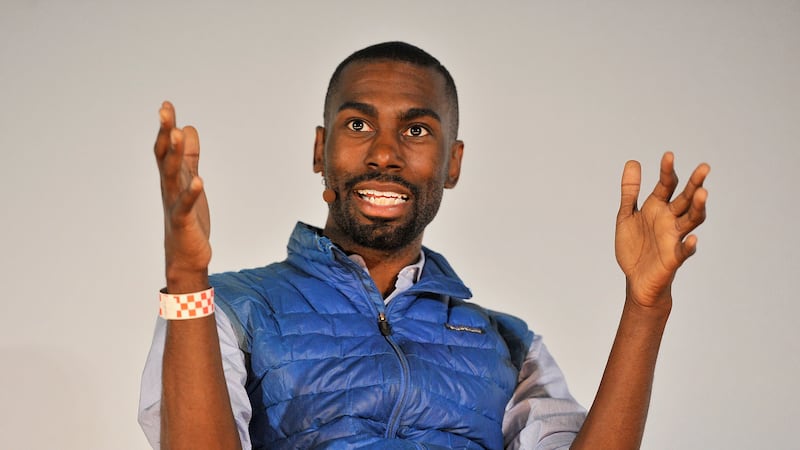Few people stir a reaction like DeRay Mckesson.
Mckesson is from Baltimore, but his fame was born on the streets of Ferguson, Mo., in 2014, amid a police crackdown on black protests of the killing of Michael Brown. Since then, Mckesson has been an outsized figure in the Black Lives Matter movement, leading national discussions on police reform, closing the racial wealth gap, and improving adult literacy. He ran for Baltimore mayor in 2016, placing sixth, and now hosts a popular podcast—Pod Save the People—on which he interviews activists and policy leaders.
This week, he's in Portland, speaking March 15 at an event hosted by the Oregon Justice Resource Center. Mckesson spoke to WW before his visit on how Black Lives Matter is changing in the Trump era.
WW: You've made social media central to your work. Why?
DeRay Mckesson: I think that if it weren't for Twitter, [Ferguson] Missouri would try to convince you that we didn't exist. I never think about it as real life and then the internet. Online helps strengthen and broaden the work that we do offline.
It's a tool. Just like any tool. Some hammers are used to put nails in and build houses, and some hammers are used to kill people. The pace at which information travels and people can organize is just different and unparalleled, which holds promise and peril.
On the perilous end, we have the first social media president. Has Trump hurt or helped Black Lives Matter?
I'm always nervous about glamorizing the source of trauma. I never talk about the organizing happening because Trump is president. We don't live in a world of equity and justice yet, so until we live in that world, people will still be pushing, whether Trump is president or not. Trump has definitely raised the ante, not only because he's attacked some people of color but because of the way he's eroded the entire system. But the organizing is happening.
Are you organizing differently to make sure your movement has staying power?
The question is: What's your goal? My goal isn't to fight for 3,000 years. That's one of the reasons why we didn't immediately seek grant funding, because I wasn't trying to build an organization that just existed for the purpose of existing—which is so many nonprofits out there. All these staff members, questionable impact, but they get by by being like, "But we're doing the work." There's a type of organizing that says that the only way you can build power is in the basement of a church every Wednesday. Then there's a type of organizing that says there are many ways that we can build power. The internet is one of those ways, and the phone is another one of those ways, and Twitter is another one of those ways. There are a host of things that we can do.
You've started doing work around literacy in Baltimore. Is the goal to help people gain the skills necessary to grab power for themselves?
So it's not about grabbing power but understanding you already have it. And with literacy, it's a little complicated. There's so much shame involved with not being able to read when you're an adult. If I had unlimited resources, we'd find and pay reading coaches who can teach in groups of one, two and three. We'd have a program from the juvenile jail and in the main jails and prisons in the city and just teach people how to read. Our focus right now is the racial wealth gap, mass incarceration and police. But I'm still fascinated by literacy.
SEE IT: DeRay Mckesson speaks at First Congregational United Church of Christ, 1126 SW Park Ave., on Thursday, March 15. 7 pm. $25-$65.
